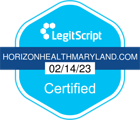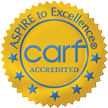SUBSTANCE & ADDICTION MANAGEMENT
Medication Assisted Treatment (MAT)
Our Opioid Addiction Management program utilizes prescribed medication to successfully manage and treat opioid dependency. The benefits of this medication include the decrease of the number and intensity of withdrawal symptoms and physical cravings, a reduced risk of fatal overdose, and a lower likelihood for abuse. It also empowers many patients into making the transition back to a more normal and functional lifestyle away from addiction.
Evidence shows these medications effectively manage and treat patients who are physically dependent on opioids.
We also offer prescriptions for medication-assisted treatment (MAT) for Alcohol Use Disorder, which works best with Counseling and Psychosocial sessions.
What Is Substance Abuse?
When substances such as illegal drugs, solvents, legal highs, alcohol, or even prescription medications are used or overused, they can change the way a person feels, thinks, or behaves. This condition is considered substance abuse.
Illegal drugs are always considered abuse, but legal substances can also be considered as substance abuse if:
- You overuse them
- You ingest them for reasons outside of their original purpose
- You consume them in great amounts
- You use them to purposefully impair your judgement
- You form a dependency on them
Recognizing Substance Abuse
People who are using or abusing substances or alcohol will often try to hide their symptoms. If you suspect that a friend or loved one could be misusing alcohol or drugs, you can be alert for the following signs:
- Abandoning activities like hobbies, sports, or social events
- Bloodshot eyes, with pupils seeming larger or smaller than usual
- Changes in sleep or appetite
- Engaging in secretive behavior
- Frequently getting into legal trouble, including fights, accidents, illegal activities, and driving under the influence
- Lack of care for physical appearance
- Lack of motivation and seeming tired or spacey
- Neglecting responsibilities
- Seeming fearful, agitated, or paranoid for no reason
- Sniffling or runny nose
- Sudden change in friends or favorite hangouts
- Sudden mood swings, irritability, or angry outbursts
- Sudden weight loss or gain
- Tremors, slurred speech, or impaired coordination
- Unexplained change in personality or attitude
- Unexplained need for money or financial problems. May borrow or steal money.
- Unusual increased energy, nervousness, or instability
- Unusual odors on clothing, breath, or body
How Can You Help Someone with an Addiction?
It’s important to remember that substance abuse becomes a disease just like high blood pressure or diabetes. If you suspect that a loved one or friend has a problem with drugs or alcohol, it’s vital to seek professional medical assistance. Refrain from “hiding” their substances since stopping some drugs at once can have severe consequences. To ensure safe withdrawal from any substance, always rely on professional medical help.
If you or anyone you know is suffering from substance abuse addiction, call SAMHSA's (Substance Abuse and Mental Health Services Administration) National Helpline at
1-800-662-HELP (4357).
If you are an Anne Arundel County Resident and are struggling with substance use or other mental health challenges, you can get help immediately!! Safe Stations: Go to any Annapolis or AA County Police or Fire Station at any time and ask for help for ANY substance; NO legal action will be taken against you!
AA County Crisis Response 410-768-5522 24/7 HELP
Dial 988 or text 741741 for trained Crisis Counselor and 24/7 Help


